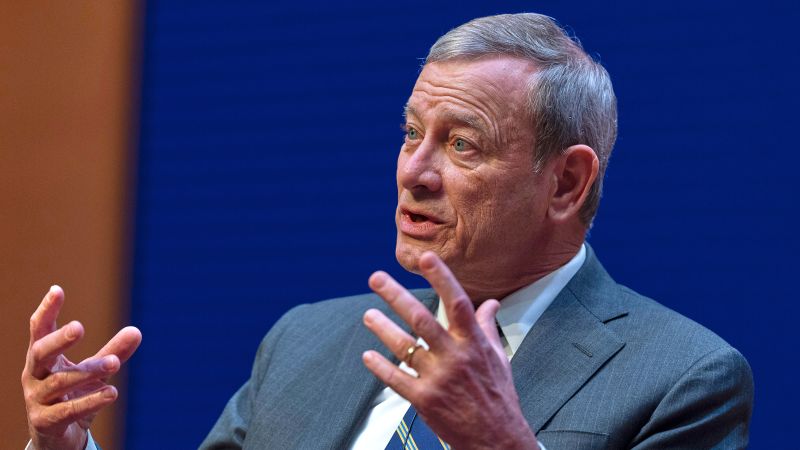Speaking a day after the Supreme Court ended its term with aburst of high-profile decisions, Chief JusticeJohn Robertson Saturday warned “political people” against criticizing judges and shrugged off critics if they are “venting” just because they lost.
Without addressing the court’s blockbuster decisions, including the high-profile ruling limiting the power of courts toact as a check on President Donald Trump, Roberts stressed the importance of an independent judiciary and warned against politicians expressing hostility toward jurists.
“I’ve been compelled over the past few years to make statements about people on one side of the aisle – their views on judges – and on the other side,” Roberts told a conference of judges meeting in Charlotte, North Carolina. “It becomes wrapped up in the political dispute that a judge who’s doing his or her job is part of the problem.”
A few months ago, an audience listening to Roberts’ remarks might have read a subtle message about Trump between those lines. In March, the chief justiceissued a striking statementpushing back on White House talking points that increasingly targeted judges – including with threats to impeach those who ruled against Trump.
But more recently, Roberts and his conservative colleagues on the court have given the president far more reasons to celebrate than complain. The most significant example of that landed Friday, when a6-3 majority backed Trumpin his months-long fight over nationwide court orders that have paused many of his controversial executive orders.
Democrats and left-leaning groups decried that ruling on Friday, arguing it kneecapped the ability of courts to stop a president’s policy even if it violates the law.
“The danger, of course, is somebody might pick up on that, and we have had, of course, serious threats of violence and murder of judges just simply for doing their work,” said Roberts, who was speaking to a conference organized by the 4th US Circuit Court of Appeals. “I think the political people on both sides of the aisle need to keep that in mind.”
Speaking with Judge Albert Diaz, the chief judge of the 4th Circuit, Roberts recognized that the court had dealt with with six major cases on its final day – more than usual. In addition to the ruling on nationwide injunctions, the court also sided with religious parents who want toopt their children out of reading LGBTQ booksin schools and upheld a Texas law that requiresage verification for pornographic websites.
“Things were a little crunched toward the end this year,” Roberts said, suggesting the court might “try to space it out a little better next year, I suppose.”
Taking criticism over the court’s opinions, Roberts said, is par for the course. But the chief justice also said that “usually” such criticism has more to do with the fact that a party lost rather than any sense they didn’t get a fair hearing.
“It’s not the judge’s fault that a correct interpretation of the law meant that, no, you don’t get to do this,” Roberts said. “If it’s just venting because you lost, then that’s not terribly helpful.”
